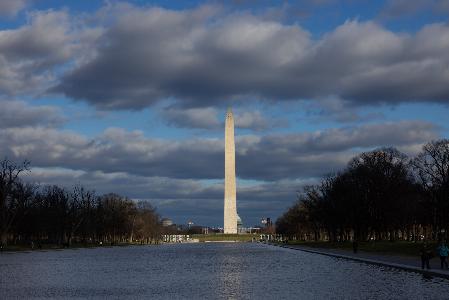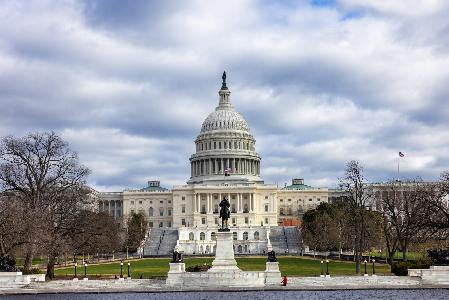After months of user complaints alleging discrimination and even a class-action lawsuit, Airbnb’s updated terms of service went into effect this month in an effort to stamp out racism on its platform. But in a strange twist of events, while these new protections benefit guests, some say they might actually hurt hosts of color, especially those in working class areas of D.C.
To learn why, we spoke with a woman who’s spoken out against discrimination in the sharing economy.
“I think the new policy is a great step forward,” said Synta Keeling in a Twitter direct message conversation with us. “But [Airbnb needs] to go back and do more for hosts, who are minority and/or live in majority minority neighborhoods.
Keeling is an Airbnb “superhost,” an Airbnb designation meaning she’s gotten rave reviews, who lives in Anacostia. She’s half-Filipino and half African-American. She rents out the spare bedrooms of her apartment to guests year round. Earlier this year, Keeling was interviewed by NPR for promoting the hashtag #AirbnbWhileBlack, which highlights discrimination that people of color experienced while using Airbnb.
One bachelor's degree, one master's degree, and one doctorate's degree later, and I still can't rent your apartment. SMH#AirbnbWhileBlack
— fayefayefaye (@fayefayefaye) April 30, 2016
Airbnb’s new terms and conditions require users to agree to a “Community Commitment” and say it guarantees that guests who feel discriminated against will be offered “booking assistance.” The changes are the result of an internal probe Airbnb conducted with the legislative office of D.C.’s American Civil Liberties Union.
Airbnb conducted the probe after Gregory Selden, a 25-year-old Black man who said he had been discriminated against on Airbnb, filed a class-action lawsuit in D.C. federal court in May, alleging the company violated the Fair Housing Act. Seldon’s experience helped the #AirbnbWhileBlack hashtag rise to prominence, according to a Mashable report. (The lawsuit was later blocked by a judge who ruled that Airbnb’s user agreement prevented users from suing.)
#AirbnbWhileBlack made a fake profile as a white guy and was accepted immediately. pic.twitter.com/miUWG3OvQV
— G (@_GSelden) May 4, 2016
However, Keeling says while the new terms protect guests from being turned away based on ethnicity, the terms don’t protect hosts from discrimination.
Another struggle for Keeling is that guests are not always keen to stay in East D.C. But because guests don’t often read listings, she says, hosts in working class neighborhoods end up with negative reviews.
“I have had guests stay with me a week and say, ‘I was warned about not going to this place called Anacostia’, [and] could I tell them where it is?” Keeling told us.
She showed us a review from a guest recommending her apartment but noting it was near “the ghetto.”
The realities of hosting in Anacostia
The other problem is that listings in areas like Anacostia net guests visiting D.C. but are far enough away from downtown that prices have to be set low. Keeling says this creates a situation where hosts in these neighborhoods — which are often neighborhoods whose inhabitants are predominantly people of color — need to “hustle more” to earn the same as downtown hosts.
“I have to work more to be a host for less pay,” she said.
However, Keeling did commend Airbnb’s general commitment to providing better experiences.
“I was overall impressed that AirBnb moved swiftly to put a policy in place with guidance,” she said, emphasizing that minority guests now have several important protections.
Her hope is for Airbnb to protect hosts, too, by expanding their non-discrimination policies. She believes this can be done by pulling down negative reviews that are racist and providing guidance for hosts on how to deal with racist guests.
“Airbnb has data and they should leverage that data to help address the problem,” Keeling wrote to us.
‘More costs and anxiety’ for hosts
The second way would be to re-examine the pricing algorithms to see if it’s possible to help hosts in cities like D.C., which have neighborhoods of varying socioeconomic strengths. It’s a particular worry Keeling has when Airbnb expands their “instant booking” process under the new guidelines, a program that lets guests book stays without approval from hosts. Keeling says Airbnb has piloted this in Italy by raising the fee on hosts who choose to vet guests instead of instantly book them.
For hosts in working class neighborhoods, who already earn less than their downtown counterparts, raising Airbnb’s fee could significantly cut into their profits. It would also discourage vetting, which Keeling said is important to people of color to ensure their safety from potentially discriminatory guests. For her, vetting is also important to ensure guests understand the apartment is far from downtown. Otherwise, hosts earn negative reviews.
“Without more changes in consideration of hosts, there will be more costs and anxiety to hosting in working class neighborhoods,” Keeling summarized to us.
Keeling switched to Airbnb after her unsuccessful attempts to rent her spare bedrooms on Craigslist. She said the discrimination she faced on Craigslist meant she could only make between $500 and $800 monthly. With Airbnb, Keeling says her monthly earnings are now between $2,000 to $4,000.
But she wants to stick with Airbnb for more than just the profits.
“What is wonderful about AirBnb is that minority hosts retake and reclaim what it means to Airbnb while Black,” explained Keeling. “Think about tourists [who are] coming from India and China and living with Black families in DC. They would have never done that via a hotel.”
Join the conversation!
Find news, events, jobs and people who share your interests on Technical.ly's open community Slack

DC daily roundup: the DMV's VC cooldown, SmartSigns for safer driving; Rep. Schiff's AI copyright bill

Will the life sciences dethrone software as the king of technology?

Delaware tech leaders gather at White House for action summit with Biden and Harris

